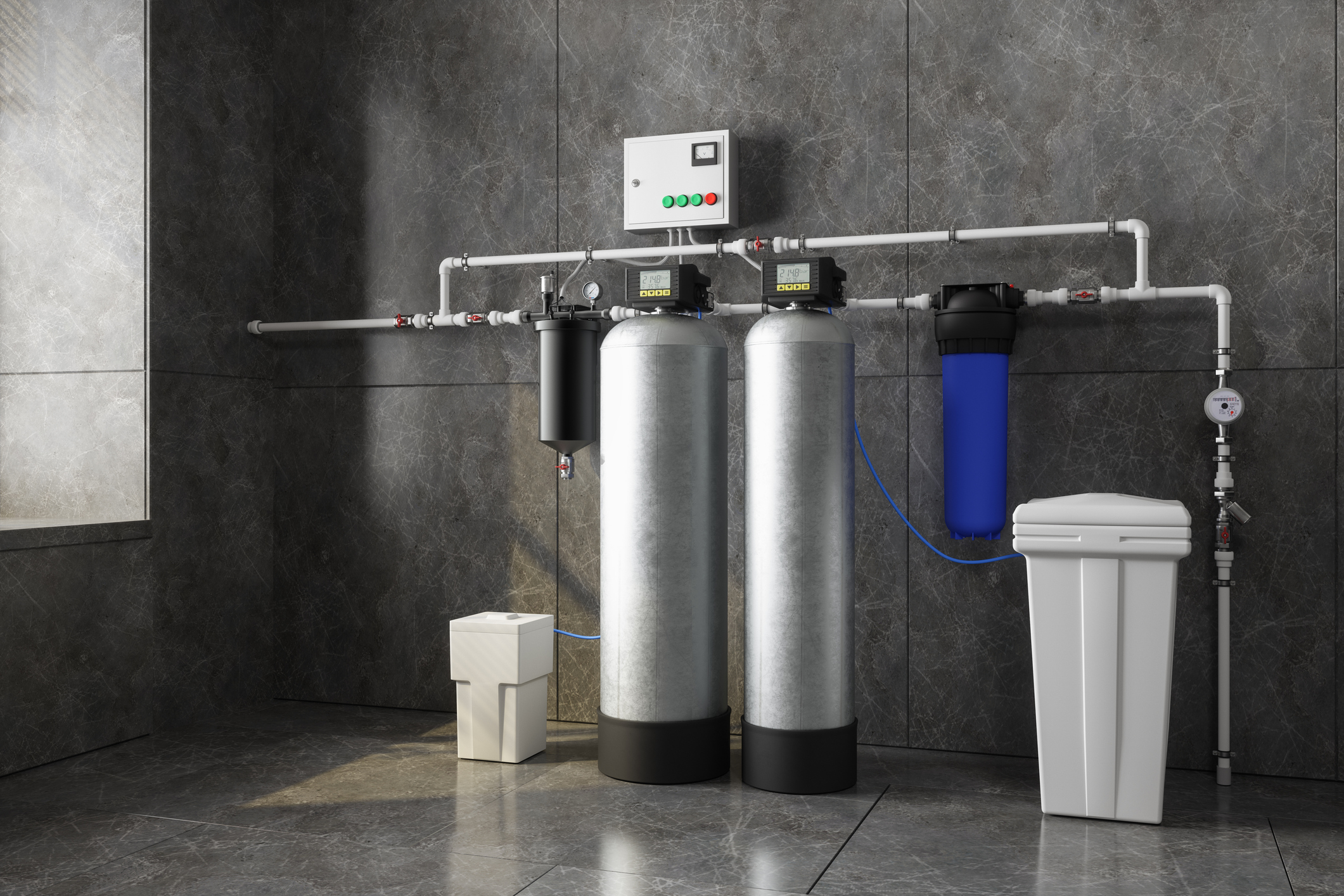Water plays a vital role in our daily lives, from drinking and cooking to cleaning and bathing. However, water quality can vary significantly depending on its source and treatment. Hard water, which contains high levels of minerals like calcium and magnesium, can lead to various issues, such as scale buildup in pipes and appliances, dry skin and hair, and decreased soap lather effectiveness. Many households opt for a water softener system, to combat these challenges. In this comprehensive guide, we’ll delve into the world of water softeners, exploring how they work, their benefits, and considerations for choosing the right system for your home.
1. What is a Water Conditioner System?
A water treatment system is a device designed to reduce the concentration of minerals, primarily calcium and magnesium, in hard water. These systems employ ion exchange technology to replace these minerals with sodium ions, effectively «softening» the water and mitigating the negative effects of hard water.
2. Benefits of Mineral Reduction System
– Scale Prevention: One of the primary benefits of water softeners is the prevention of scale buildup in pipes, faucets, and appliances. This helps maintain plumbing efficiency and extends the lifespan of water-using appliances such as washing machines, dishwashers, and water heaters.
– Improved Soap Lathering: Soft water allows soaps and detergents to lather more effectively, leading to better cleaning results in laundry, dishes, and personal hygiene.
– Skin and Hair Health: Soft water is gentler on the skin and hair, reducing dryness, itchiness, and irritation often associated with hard water.
– Reduced Energy Consumption: By preventing scale buildup in water heaters and other appliances, water softeners can contribute to energy savings by improving heating efficiency.
– Extended Appliance Lifespan: Appliances like coffee makers, kettles, and showerheads are less prone to mineral deposits and corrosion when supplied with soft water, extending their lifespan.
3. How Water Softeners Work
Water softeners utilize a process called ion exchange to remove hardness minerals from water. A typical Water Quality Improver consists of a mineral tank filled with resin beads that carry a negative charge. When hard water passes through the resin bed, the positively charged calcium and magnesium ions are attracted to the resin beads, displacing the sodium ions initially attached to them. As a result, the calcium and magnesium ions are removed from the water, leaving behind softened water that is gentler on plumbing and appliances.
4. Considerations for Choosing a Water Softener
– Water Hardness Level: Determine the hardness level of your water through testing to select an appropriate water softener capacity.
– System Size: Consider the size of your household and water usage patterns to choose a water conditioner with adequate capacity.
– Regeneration Process: Opt for a water softener with an efficient regeneration process to minimize water and salt usage.
Type of Water Softener: There are various types of water softeners, including salt-free, salt-based, and magnetic/ electronic softeners. Based on your preferences and requirements, evaluate each type’s pros and cons.
Installation and Maintenance: When selecting a water conditioner system, factor in installation requirements, ongoing maintenance, and operating costs.
5. Maintenance and Care for Water Softeners
Proper maintenance is essential to ensure the optimal performance and longevity of your water conditioner. Key maintenance tasks include:
– Regularly checking salt levels and refilling the brine tank as needed.
– Monitoring water hardness levels and adjusting regeneration settings accordingly.
– Cleaning the resin bed and control valve periodically to remove sediment and debris.
– Inspecting and replacing components such as seals, valves, and resin beads as recommended by the manufacturer.
A water softener system can significantly improve water quality, appliance performance, and overall comfort in your home. By understanding how water softeners work, their benefits, and key considerations for selection and maintenance, you can make an informed decision to create a healthier and more efficient living environment. Whether you’re dealing with hard water issues or seeking to enhance water quality, a water softener may be a valuable investment for your household’s well-being.
Discover the secret to a healthier home with our expert guide from Plomero en Phoenix on the water softener system! Say goodbye to hard water woes and hello to a world of improved water quality. Call us now at (602) 730-4663 to secure your appointment.



